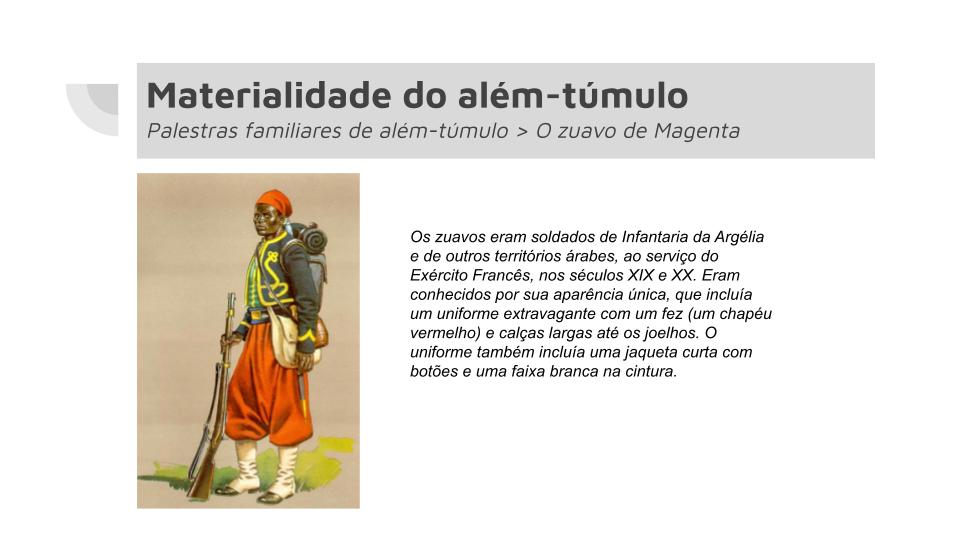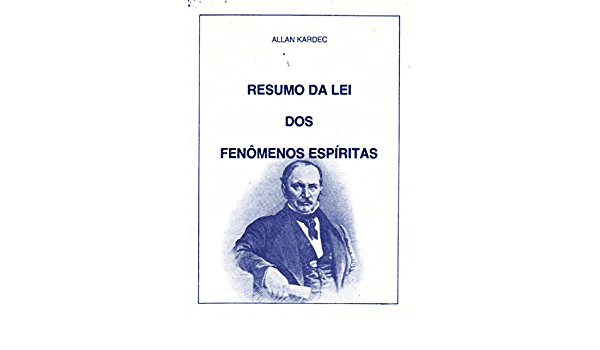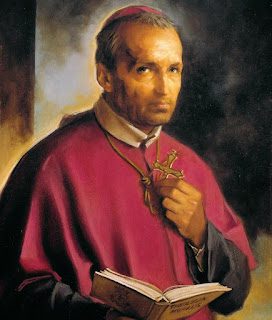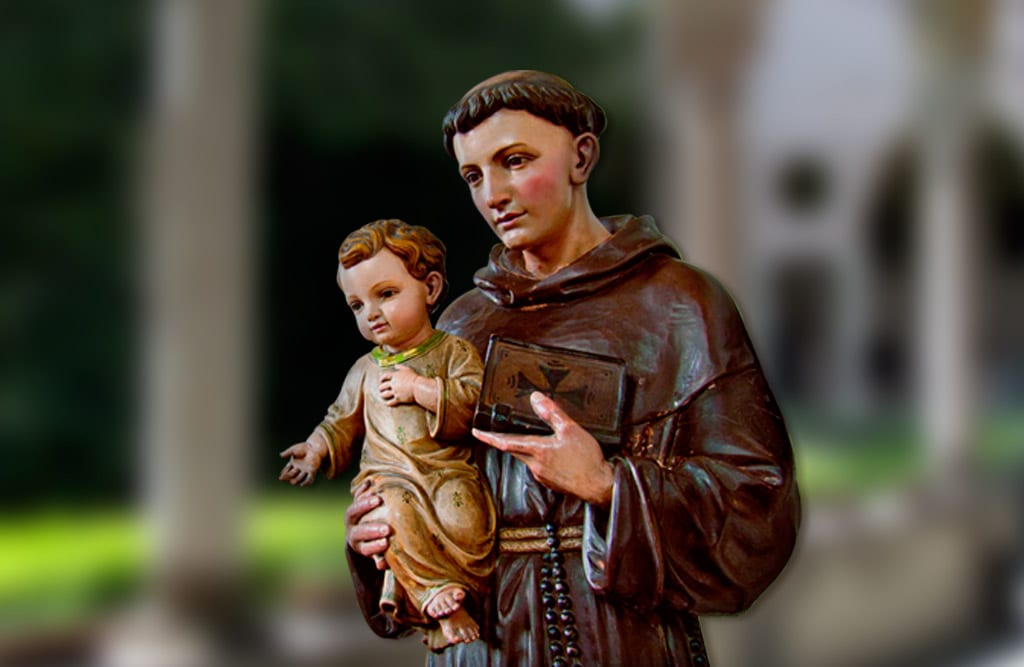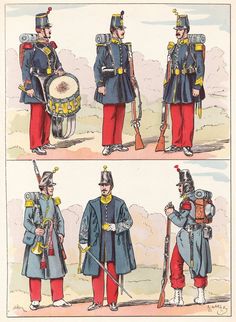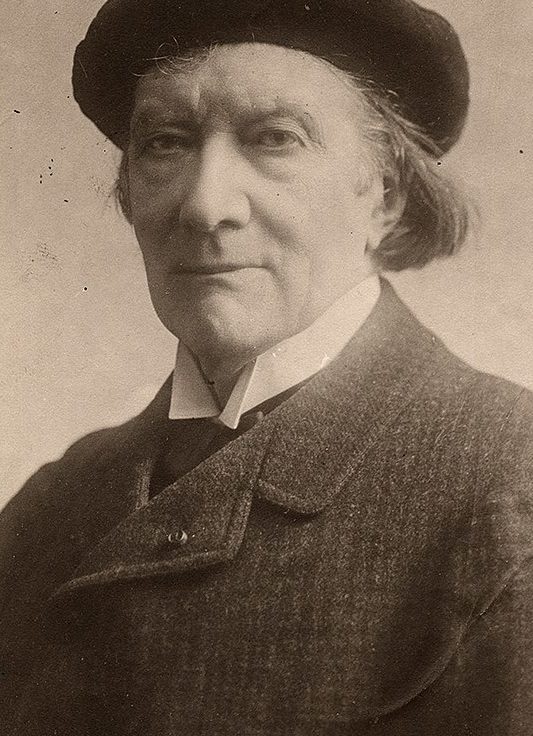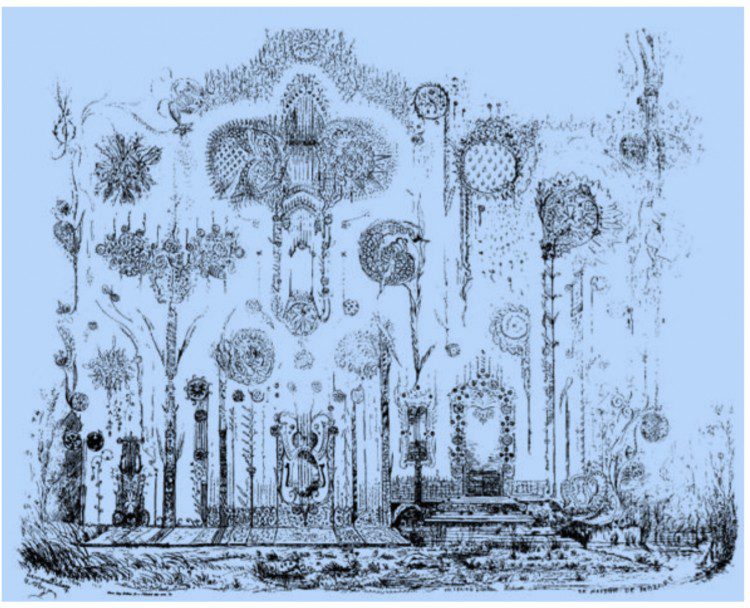Exploring the Double Material Theory in the Spirit World with Allan Kardec
Spiritual manifestations have always been a crucial point in Spiritist Doctrine. It was through these manifestations and their better understanding that Kardec was able to establish his moral philosophy. Thus, we highlight this 1859 study exposed in the Revista Espirita of August 1859.
He follows.
We extract the following passage from a letter that a correspondent of the Parisian Society of Spiritist Studies sent us from the Jura department:
“…As I told you, sir, the spirits liked our old dwelling. Last October (1858), the Countess of C…, a close friend of my daughter, came with her 8-year-old son to spend a few days at our mansion. The child slept in the same room as her mother, and the connecting door to my daughter's room was left open, in order to prolong the hours of daylight and conversation. The boy would not sleep and would say to his mother: 'What are you going to do with that man who is sitting next to your bed? He is smoking a big pipe. See how it fills the room with smoke! Send him away, he's rattling the curtains.'
“This vision lasted all night. The mother couldn't get the child to shut up, and no one could close their eyes. This circumstance did not surprise me or my daughter, as we know that there are spiritist manifestations. The mother, however, believed that the child was daydreaming or having fun.RE 1859
Observation: The vision was mediumistic, so only the child saw it.
“Here is another fact that I witnessed personally and that happened to me in the same room, in May 1858. It is the case of the appearance of the Spirit of a living person, who was very surprised to have come to visit me. Here are the circumstances: I was very sick and had not slept for some time, when at ten o'clock at night I saw a friend of my family sitting next to my bed. I expressed my surprise at his visit at that hour. He said to me: “Do not speak, for I have come to watch over you; do not speak, for you must sleep,” and he stretched out his hand over my head. Several times I opened my eyes to see if he was still there, and each time he made a sign for me to close them and be quiet. He rolled the snuffbox between his fingers, and every now and then he took a pinch, as was his custom. Eventually I fell asleep, and when I woke up the vision was gone.
Idem
NOTE: Kardec briefly quotes the explanations on the facts of apparitions of incarnates and spirits (condensation of the perispirit or molecular modification).
He follows:
A molecular modification takes place in its texture, which makes it visible and even tangible, and which can give it, to a certain extent, the properties of solid bodies. We know that perfectly transparent bodies become opaque simply by changing the position of the molecules or by adding another body, equally transparent. We don't really know how spirits manage to make their ethereal body visible. Most of them do not even realize this, but, from the examples we have cited, we understand its physical possibility, which is enough to remove from the phenomenon what, at first sight, could seem supernatural. Therefore, the Spirit can do it, either by simple intimate modification, or by assimilating a portion of strange fluid that momentarily alters the appearance of its perispirit. It is, in fact, this last hypothesis that stands out from the explanations that have been given to us, and that we report when dealing with the subject (May, June and December).
So far no difficulty concerning the personality of the Spirit. We know, however, that they appear in clothes whose appearance changes at will; sometimes they even have certain toilet accessories, jewelry, etc. In the two apparitions mentioned at the beginning, one had a pipe and produced smoke; the other, a tobacco box and took pinches. Note, however, the fact that this spirit was from a living person and that his snuffbox was in everything similar to the one he usually used, and that he had stayed at home. What, then, do this tobacconist, this pipe, these clothes and these jewels mean? Would the material objects that exist on Earth have an ethereal representation in the invisible world? Does the condensed matter that forms such objects have a quintessential part, which escapes our senses?
OBSERVATION: Position of the true scientist, in search of the truth, without discarding anything.
This is an immense problem, the solution of which may provide the key to a number of things that have not yet been explained. It was this tobacco company that put us on the path, not only of the fact, but of the most extraordinary phenomenon of Spiritism: the phenomenon of pneumatography or direct writing, which we will talk about below.
All the theories that we present, regarding Spiritism, were provided to us by the Spirits, who many times contradicted our own ideas, as happened in the present case, proving that the answers were not a reflection of our thinking. But the way to obtain a solution is not unimportant.
We know from our own experience that it is not enough to ask abruptly for something to get it. The answers are not always quite explicit; it is necessary to develop the subject with certain precautions; arrive at the objective progressively and through a chain of deductions that require prior work. In principle, the way of formulating the questions, the order, the method and the clarity are things that cannot be neglected and that please serious spirits, because they see a serious objective in this.
NOTE: This means that, of course, the researcher can have a prior idea, but that, acting in good faith, he cannot stick to it. And also, of course, that the intent of the question is just as important.
Here is the conversation we had with Espírito de São Luís, regarding the tobacco shop, with a view to solving the problem of producing certain objects in the invisible world. (Society, June 24, 1859).
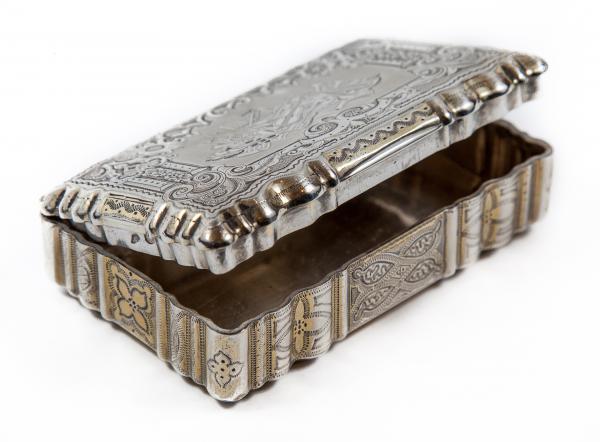
1. ─ In Mrs. R…'s report, it is about a child who saw a man smoking a large pipe near his mother's bed. It is understood that this Spirit could have taken on the appearance of a smoker; it seems, however, that he really smoked, for the boy saw the room full of smoke. What was that smoke?
─ A look produced for the boy.
2. ─ Mrs. R… also cites the case of an apparition, seen by her, of the spirit of a living person. This Spirit had a tobacconist and took snuff. Could he experience the feeling one gets from taking a pinch?
─ No.
3. ─ This snuffbox had the shape of the one he habitually uses, and which was in his house. What was this snuffbox in the hands of the Spirit?
─ Always looks. It was so that the circumstances would be noticed, as they were, and so that the apparition would not be taken for a hallucination produced by the state of health of the seer. Spirit wanted this lady to believe in the reality of her presence and took on all appearances of reality.
4.1 – You say that it is an appearance, but an appearance has nothing to do with reality; it's like an optical illusion. I would like to know if this snuffbox was nothing more than an unreal image, like, for example, that of an object reflected in a mirror.
NOTE from AK: One of the members of the Society, Mr. Sanson observes that there is something real in the image reproduced by the mirror. If the image does not remain in the mirror, it is because nothing fixes it, but if it is projected onto a daguerreotype plate, it leaves an impression, evident proof that it is produced by some substance and that it is not just an optical illusion.
4.2 – Mr. Sanson's observation is perfectly fair. Would you be kind enough to tell us if there is any analogy with the tobacco box, that is, if there is anything material in that tobacco box?
─ Certainly. It is with the help of this material principle that the perispirit takes on the appearance of clothing similar to those that the Spirit wore when alive.
NOTE from AK: Evidently the word appearance it must be taken here in the sense of image, of imitation. The real tobacconist was not there. What Spirit had was just a reproduction. Compared to the original, it was but an appearance, though formed by a material principle.
Experience teaches us that we should not take certain expressions used by spirits literally. Interpreting them according to our ideas, we expose ourselves to great mistakes, so we must deepen the meaning of their words, whenever there is a minimum ambiguity. Here is a recommendation constantly made by the Spirits. Without the explanation we provoke, the word appearance, repeated continuously in analogous cases, could give rise to a false interpretation.
OBSERVATION: Today, we know the principle of the image reflected in a mirror and its fixation in a photograph: the behavior of waves. The light, as electromagnetic energy, reflects off the mirror and impresses the photography device, whatever it may be. It seems that it is to this same principle (of wave) that the Spirit refers.
5. ─ Would there be an unfolding of inert matter? Would there be, in the invisible world, an essential matter, covering the form of the objects that we see? In a word, would these objects have their ethereal double in the invisible world, as men are represented there in Spirit?
AK's NOTE: Here's a theory like any other, and it was our thinking. The Spirit, however, did not take it into account, which absolutely did not humiliate us, because its explanation seemed very logical to us and because it rests on a more general principle, of which we find many explanations.
─ It doesn't happen that way. The Spirit has a power over the material elements disseminated throughout space, in our atmosphere, that you are far from suspecting. He can, at will, concentrate these elements and give them an apparent form, suitable for his designs.
6. ─ I ask the question again categorically, in order to avoid any misunderstanding. Are the clothes with which spirits are covered something?
─ It seems that my previous answer settles the question. Don't you know that the perispirit itself is something?
7. ─ It follows from this explanation that the Spirits make the etherized matter undergo transformations at will and that, therefore, in the case of the tobacconist, the Spirit did not find it perfectly finished; he made it himself at the moment he needed it, and then undid it. The same should happen with all other objects, such as clothing, jewelry, etc.
─ But it is obvious.
8. ─ That tobacco box was so clearly visible to Mrs. R… to the point of deceiving her. Could the Spirit have made it tangible?
─ It could.
9. ─ In that case, could Mrs. R… have taken it in her hands, thinking she was getting an authentic tobacco box?
─ Yes.
10. ─ If I had opened it, I would probably have found snuff. If she had taken it, would it have made her sneeze?
─ Yes.
11. ─ Can the Spirit not only give the form, but even special properties?
─ If you want; It is in virtue of this principle that I have answered affirmatively to the preceding questions. You will have proof of the powerful action that the Spirit exerts on matter and which, as I have already told you, you are far from suspecting.
NOTE: Kardec has never been so clear in his questions over the course of this 1 year and a half of Revista Espirita. He is evidently working on both the new enlarged edition of The Spirits' Book and then what would become The Mediums' Book, published a few years later.
12. ─ Let us then suppose that he wanted to make a poisonous substance and that a person had taken it. Could this have been poisoned?
─ I could, but I wouldn't have done it, because I wouldn't have been allowed to do it.
OBSERVATION: We know, today, that Creation is far from being “each for himself”, and that, in fact, it is “one for all and all for one”, with those most inferior are always “led” by the higher. The thoughts of the highest spirits are irresistible to the lowest. We tend to think of ourselves as abandoned to our own devices, but, more and more, I understand that this is not true. Superior Spirits “lead” us towards good, that is, they offer an irresistible attraction, through thought. It is possible to understand why imperfect Spirits, inclined to evil, are unable to break this Law to do evil.
“Everything is linked in the Universe”
13. ─ Could you have made a salutary substance suitable for healing in case of illness? Has there ever been such a case?
─ Yes; often.
14. ─ In the same way he could make a food substance; let's suppose he had made a fruit or some snack. Could someone eat it and feel fed?
─ Yes, yes. But do not look so hard to find that which is easy to understand. A ray of sunlight is enough to make your gross organs perceptible to those material particles that fill the space in which you live. Do you not know that the air contains water vapour? Condense it and you will bring it to a normal state. Deprive it of heat and behold, its impalpable and invisible molecules will become a solid and very solid body. There are other matters that will lead chemists to present you with even more astonishing marvels. Only the Spirit has instruments more perfect than yours: his own will and God's permission.
NOTE from AK: The issue of satiety is very important here. How can a substance that has only temporary and, in a sense, conventional existence and properties produce satiety? By its contact with the stomach, this substance produces the sensation of satiety, but not the satiety resulting from fullness. If such a substance can act on the organic economy and modify a morbid state, it can also act on the stomach and produce the sensation of satiety. However, we ask pharmacists and restaurant owners not to be jealous, nor to think that the Spirits will come to compete with them. These cases are rare and exceptional and never depend on the will. Otherwise, food and healing would be very cheap.
15. ─ Could the Spirit manufacture coins in the same way?
─ For the same reason.
16. ─ Once made tangible by the will of the Spirit, could these objects have a character of permanence and stability?
─ They could, but this is not done. It's outside the law.
17. ─ Do all spirits have the same degree of power?
─ No, no.
18. ─ Who have this power more particularly? ─ Those to whom God grants it, when this is useful.
19. ─ Does the elevation of a Spirit influence this case?
─ It is certain that the higher the spirit, the more easily it obtains this power. This, however, depends on the circumstances. Lesser spirits can also get it.
OBSERVATION: And, in this case, they are supplied by the assistance of superior spirits, often without even knowing it. To see The Book of Mediums or Guide for Mediums and Evokers > Second Part — On Spiritist Manifestations > Chapter V — On Spontaneous Physical Manifestations > Throwing Objects.
20. ─ Does the production of semi-material objects always result from an act of the Spirit's will, or does it sometimes exercise this power despite its own?
─ This often happens in spite of you.
21. ─ Would this power then be one of the attributes, one of the faculties inherent in the very nature of the Spirit? Would it be, in some way, one of the properties, like that of seeing and hearing?─ Certainly. But sometimes he himself ignores it. Then another exercises it for him, in spite of himself, when circumstances demand it. The Zouavo's tailor was precisely the spirit I just mentioned and to which he alluded in his joking language.
OBSERVATION: We find an example of this faculty in certain animals, as, for example, in the electric fish, which radiates electricity without knowing what it does, nor how, and who does not even know the mechanism that produces it. Don't we ourselves sometimes produce certain effects through spontaneous acts of which we are not aware? Thus, it seems very natural to us that the Spirit operates in this circumstance by a kind of instinct. He works of his own free will, without knowing how, just as we walk without calculating the forces we bring into play.
22. ─ We understand that in the two cases mentioned by Mrs. R.., one of the spirits wanted to have a pipe and the other a tobacco box to impress the vision of a living person. I ask, however, if it had not managed to make her see, could the Spirit think that he had these objects, creating an illusion for himself?
─ Not if he has a certain superiority, because he will be perfectly aware of his condition. The same is not true of inferior spirits.
AK'S OBSERVATION: That was, for example, the case of the queen of Oude, whose evocation appears in our issue of March 1858, who still thought she was covered in diamonds. (Click here for the article on Queen of Oude)
23. ─ Can two spirits recognize each other by the material appearance they had in life?
─ This is not how they recognize each other, as they will not assume that appearance for each other. If, however, under certain circumstances, they find themselves in the presence of each other, dressed in that appearance, why should they not recognize each other?
NOTE: this is important! In mediumistic novels, the fantastic world created is all material or materialistic, and the form, in these tales, is fundamental. Here, we have again the confirmation already made before that the form is not important for the Spirits in general, although it is predominant for the Spirits still very attached to the matter (that is, of very attached thought). It follows from this that it would make sense for a spirit in turmoil to “see itself” in a condition like that of André Luiz’s threshold, but the same could not happen when already detached from these ideas, which does not seem to be something so distant, according to the reports of several Spirits, given to Kardec.
24. ─ How can spirits recognize themselves in the midst of the crowd of other spirits, and above all how can they do it when one of them goes to look for in a distant place and often in other worlds, those we call?
─ This is a question whose answer would take a very long way. It is necessary to wait. You are not advanced enough. For the moment, content yourself with the certainty that this is so, for you have sufficient proof of this.
TO THINK ABOUT: I understand that he meant, at the end: “how can a Spirit recognize another who assumes another appearance, when visiting other worlds?”. IF we always forget that our world, where we live now, is material and needs eyes and light to see. in spirituality there is no need for appearance, much less do spirits have eyes to see. Is that it?
25. ─ If the Spirit can take from the universal element the materials to make all these things and give them a temporary reality, with its properties, it can also take from there what is necessary to write. Consequently, this gives us the key to the phenomenon of (( direct writing *Clarification: Direct writing happens when a Spirit, by will and with the utility of doing so, makes real writing appear on paper, sometimes in graphite, sometimes in ink, sometimes in print format. We recommend reading the following article, “Pneumatography or direct writing”, as well as the article with the same title, in May 1860, and also Chapter XII of The Book of Mediums — “On pneumatography or direct writing”. Pneuma: among the ancient Greek thinkers, especially the Stoics, designation of the spirit, animating breath or creative force, used by divine reason to vivify and direct all things. )) .
─ You finally understand.
26. ─ If the material used by the Spirit is not permanent, how come the traces of direct writing do not disappear?
─ Do not judge by the words. From the start I never said never. In the cases studied, these were bulky material objects; here we are dealing with signs that should be conserved and are conserved.
TO THINK ABOUT: This involves a profound question. Kardec had understood that the fluidic matter that the Spirits serve is always impermanent, since, in the mentioned cases, it always dissolves. However, cases of direct writing do not disappear. How could that be?
*Clarification: Direct writing happens when a Spirit, by will and with the utility of doing so, makes real writing appear on paper, sometimes in graphite, sometimes in ink, sometimes in print format. We recommend reading the following article, “Pneumatography or direct writing”, as well as the article with the same title, in May 1860, and also Chapter XII of The Book of Mediums — “On pneumatography or direct writing”. Pneuma: among the ancient Greek thinkers, especially the Stoics, designation of the spirit, animating breath or creative force, used by divine reason to vivify and direct all things.
The above theory can be summarized as follows: Spirit acts on matter; it takes from universal primitive matter the necessary elements to, at will, form objects with the appearance of the different bodies existing on Earth. He can also operate on elementary matter, at will, an intimate transformation that gives it certain properties. This faculty is inherent to the nature of the Spirit, which often exercises it, when necessary, as an instinctive act, which it does not realize.
The objects formed by the Spirits have a temporary existence, subordinated to their will or necessity. He can make and break them at will. In certain cases, in the eyes of living people, these objects can have all the appearances of reality, that is, become momentarily visible and even tangible. There is formation, but not creation, since the Spirit cannot bring anything out of nothing. (LM 130 and 131)
